Often confused with the term “clone,” a spiritual successor is a product that is similar to or directly inspired by something that came before it. Although, unlike traditional sequels, it doesn’t share continuity with the franchise, thus making it only a successor “spiritually.” It may also refer to a work by a creator that mimics one of their earlier works but is set in a different continuity with distinct settings and characters.
There are a lot of spiritual successors out there, be it from the same developers or entirely different studios. Some never managed to live up to the standards set by their predecessors, while others completely overshadowed them.
Stardew Valley/Harvest Moon
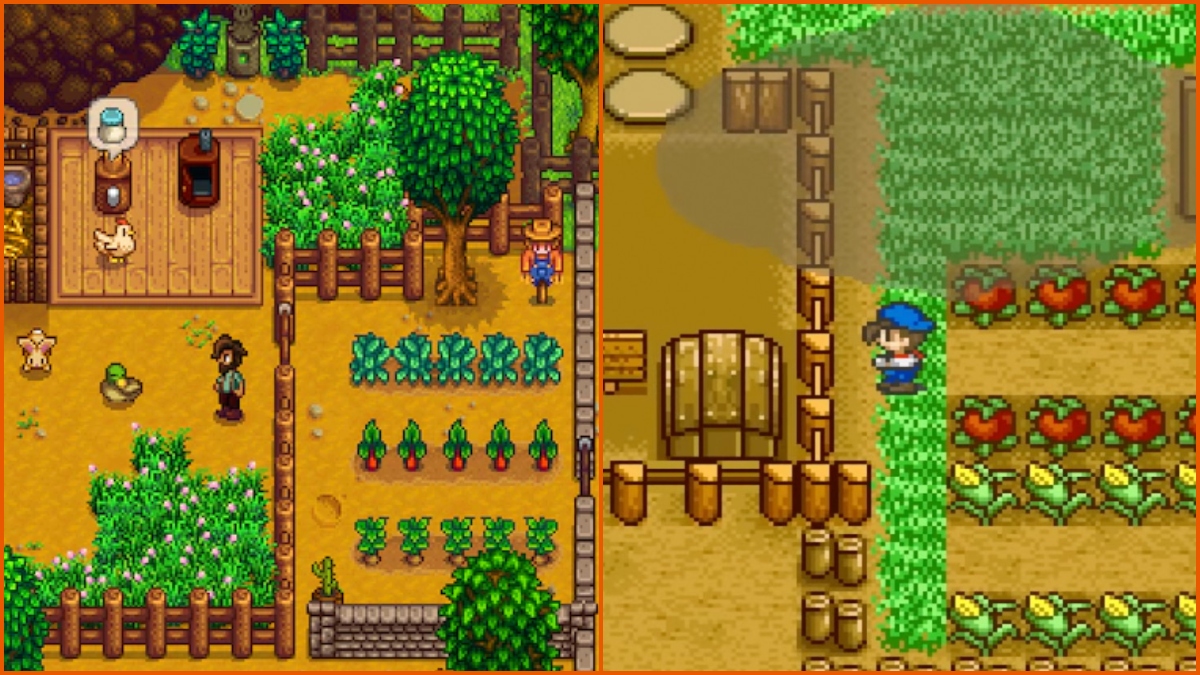
Story of Seasons, previously known as Harvest Moon, originally released on the Super Nintendo Entertainment System in 1996. It has since been re-released on the Satellaview, Nintendo 3DS, Wii, Wii U, and Nintendo Switch. Story of Seasons follows a young man who’s tasked with managing the farm he inherited from his grandfather.
Exactly 20 years later, a copycat named Stardew Valley released on Windows before being ported to other platforms. It is now commonly played on the Nintendo Switch. Stardew Valley is an overall better execution of the agricultural role-playing mechanic. Yasuhiro Wada, the creator of Story of Seasons, highly praised the game, saying it reminded him that Story of Seasons was not a forgotten series and continued in spirit.
Worms/Scorched Earth
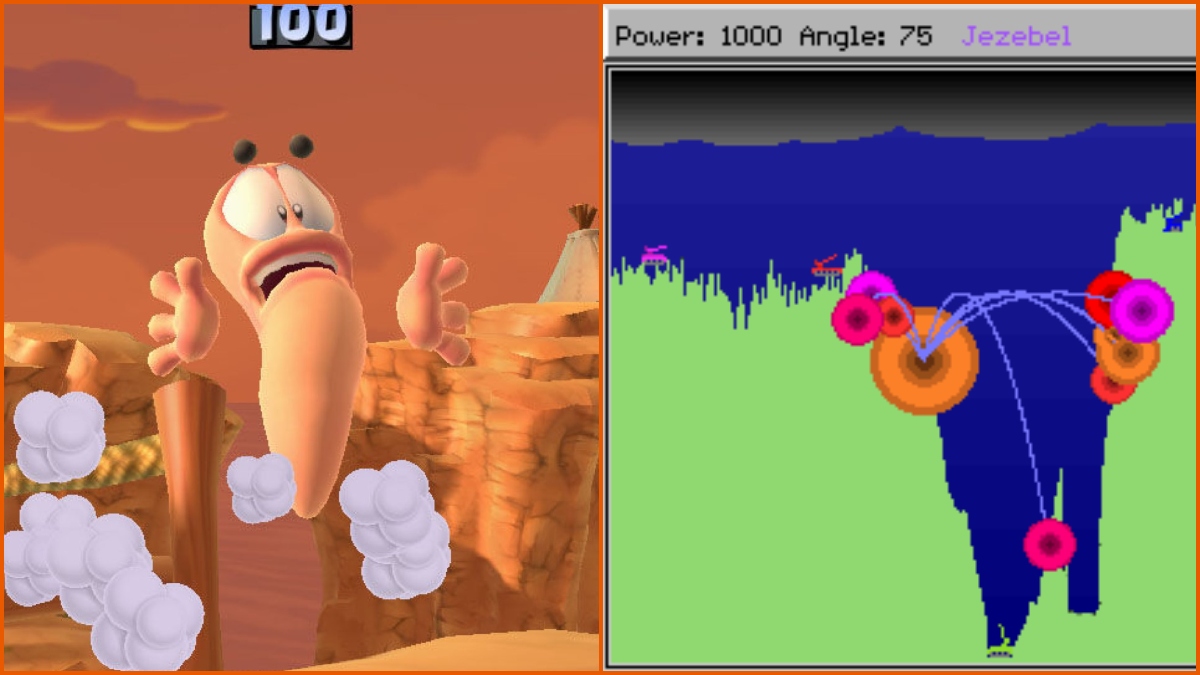
Wendell Hicken’s Scorched Earth is an artillery game that allows players to control tanks in a turn-based battle on a two-dimensional terrain. For each shot, the angle and the power of each tank turret can be adjusted. Scorched Earth is among some of the earliest computer games and is often considered the modern archetype of mainframes with only a teletype output. Four years after Scorched Earth, the Worms series released in 1995, reinventing the formula of artillery games.
There are over 20 mainstream and six spin-off games in the Worms franchise, which sees players command small platoons of anthropomorphic worms who battle each other with the objective of becoming the sole surviving team. Even the earliest iterations of Worms managed to outdo Scorched Earth, which was sadly confined to the stone age of technology.
Final Fantasy/Dragon Quest
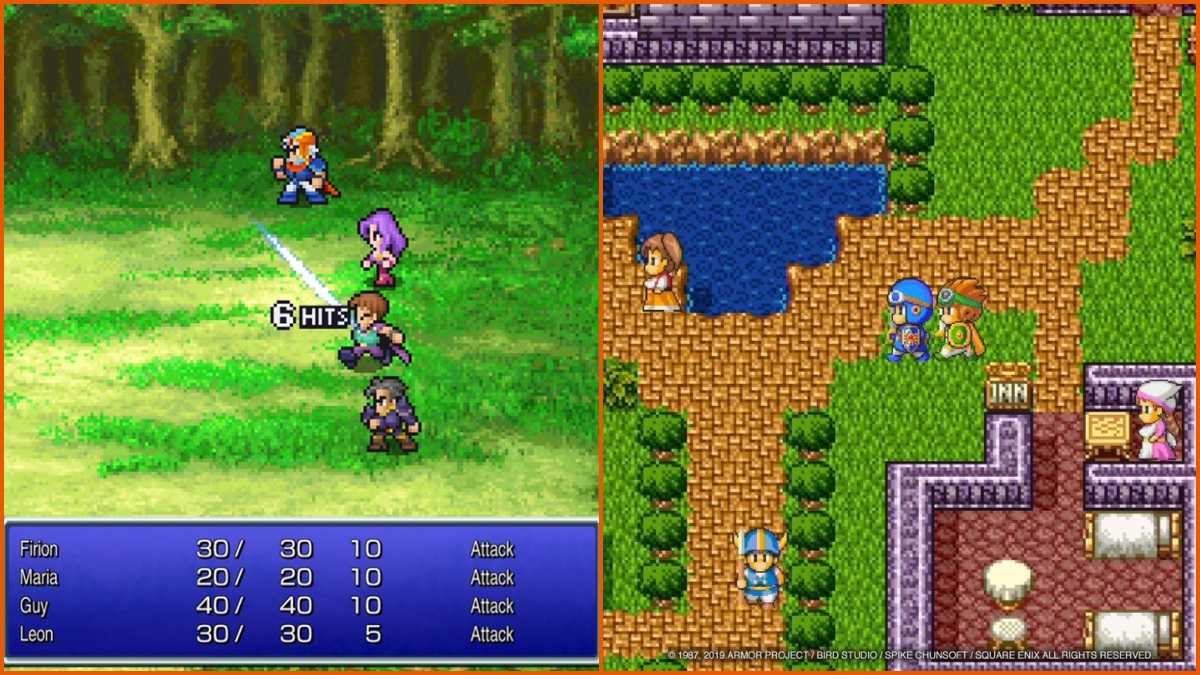
Back in 1987, Hironobu Sakaguchi kickstarted what would become one of the longest-running and most successful video game franchises ever made. As of 2023, the Final Fantasy series is ongoing with the latest release being Final Fantasy XVI. The story follows four youths called the Warriors of Light who must band together to defeat evil forces, restore light to their elemental crystals, and — by extension — save their world.
Final Fantasy itself was based on 1986’s Dragon Quest, another Square Enix venture that never really left the launchpad. Their narratives are identical, but Dragon Quest just didn’t catch on as effortlessly as Final Fantasy, and Square Enix abandoned the franchise in 2005. Although there’s some memorable imagery in Dragon Quest, such as the Slimes, the premise of Final Fantasy has more complex lore that attracted thousands of followers.
Resident Evil/Alone in the Dark
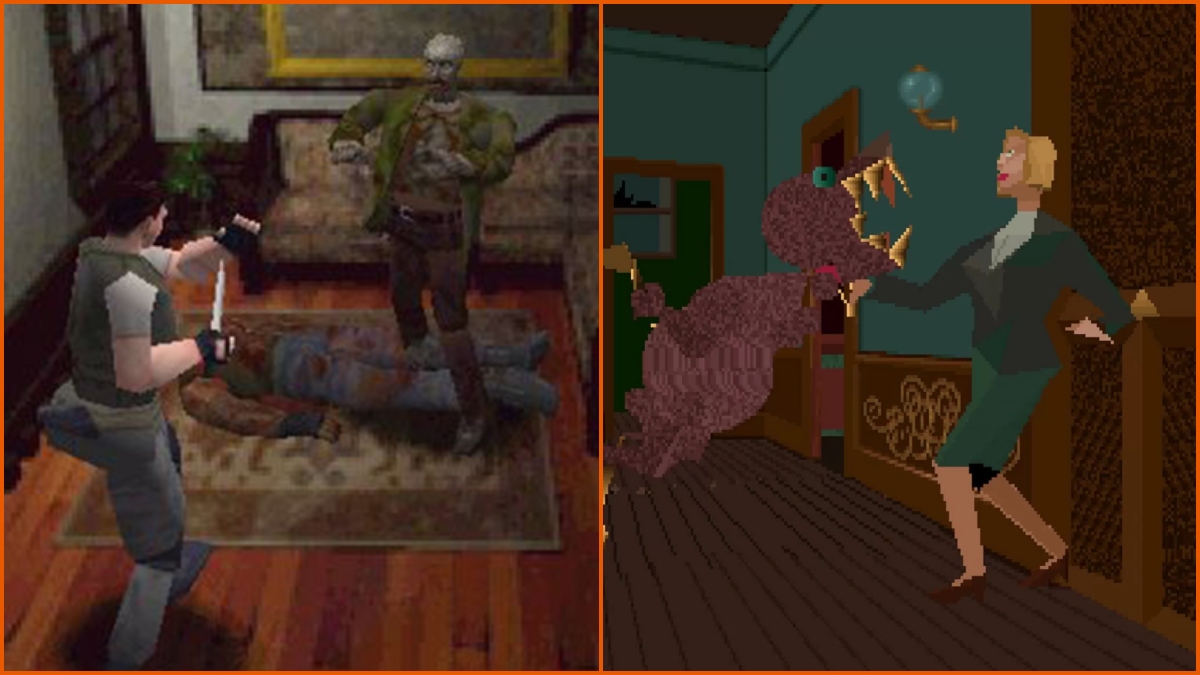
In 2023, a reimagining of Alone in the Dark based on the original 1992 video game will release in a similar style to the Resident Evil remakes. Even the combined star power of David Harbour and Jodie Comer can’t save Alone in the Dark, however, as it continues to live in Resident Evil‘s shadow. It might execute the same techniques, but it hasn’t ever — and probably never will — have the same mass following that the ongoing Resident Evil franchise has earned.
Despite Alone in the Dark preceding Resident Evil by four years, the latter has earned the titles of highest-grossing horror franchise, Capcom’s best-selling franchise, and the third highest-grossing video game film series. As for Alone in the Dark, it’s a sadly forgettable wannabe.
Uncharted/Tomb Raider
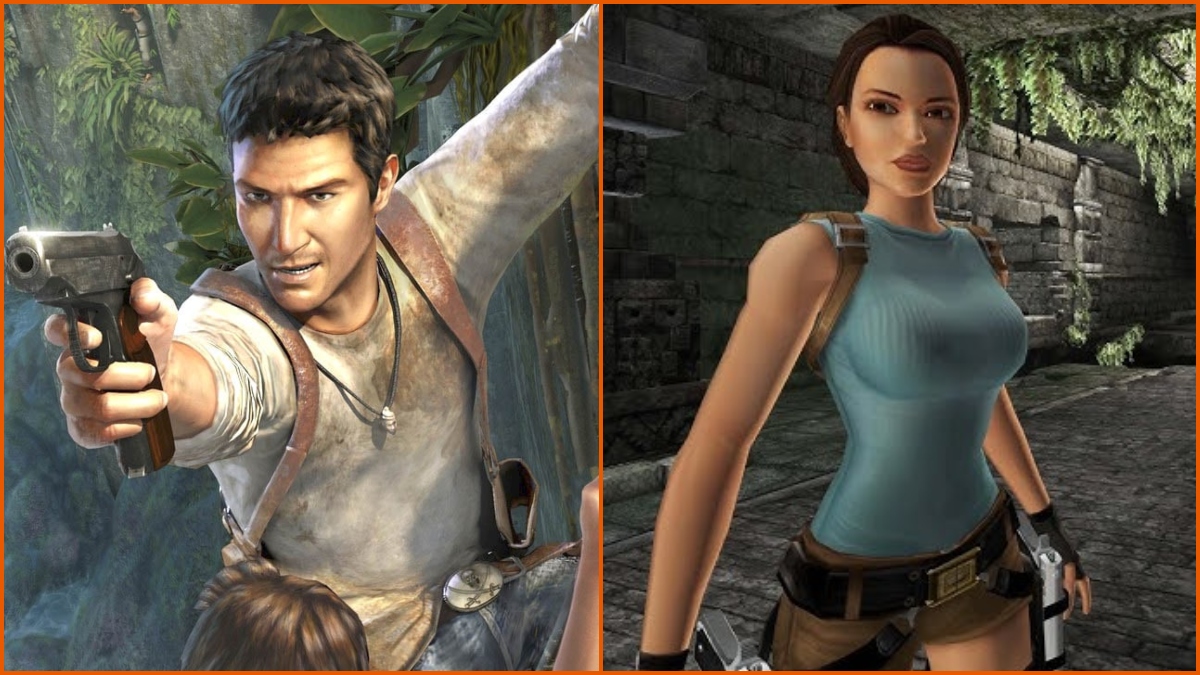
Before you start sharpening your pitchforks, we’re not claiming that Uncharted is superior to Tomb Raider in every way. In fact, quite the opposite. When considering the larger franchise as a whole, Tomb Raider wins every time. However, it’s the remake trilogy in particular that tips the scales. As far as the earlier sequels, namely those released in the mid-2000s, Uncharted wins the day.
Despite releasing around the same time (2006-2007), the first Uncharted game, Drake’s Fortune, was leaps and bounds ahead of Tomb Raider (namely the Tomb Raider: Anniversary era) from a visual perspective, where the graphics, physics, and atmosphere is concerned. Otherwise, Uncharted wishes it could reach the standard that Tomb Raider has set.
Cities: Skylines/Sim City

From EA, the creators of FIFA, the open-world city-building game Sim City, which eventually inspired a number of spin-off Sim titles. Players are given a blank map to start and are tasked with building a civilization on a budget. Other real-time management and construction titles include Rollercoaster Tycoon and Megapolis. Although Sim City released in 1989, the interest in city-building games had plummeted somewhat, so by the time Cities: Skylines arrived almost 30 years later, it renewed interest in that sub-genre.
After the critical failure of 2013’s Sim City remake, publisher Paradox was reluctant to give the project the go-ahead, but it turned out to be way more influential than initially planned. It performed so well, in fact, that a sequel titled Cities: Skylines II is set to be released on October 24, 2023.
Bioshock/System Shock 2

BioShock is considered a spiritual successor to the System Shock series, on which many of Irrational’s team, including director Ken Levine, had worked previously. Although the games undersold sales expectations, they became cult classics. A re-release of both games occurred in 2012, but by that time, Bioshock had already become more successful. Although the System Shock series is receiving a remake in 2023, we can’t imagine it comparing to Bioshock‘s cultural significance, but we’ll prepare to be pleasantly surprised.
Overall, Bioshock has an inescapable atmosphere, evokes raw emotions, and boasts sumptuous art direction and superb voice acting. The game is also credited with developing the concept of video games as a form of art. While System Shock is just as enjoyable, it didn’t quite capture the same experience.
Inside/Limbo
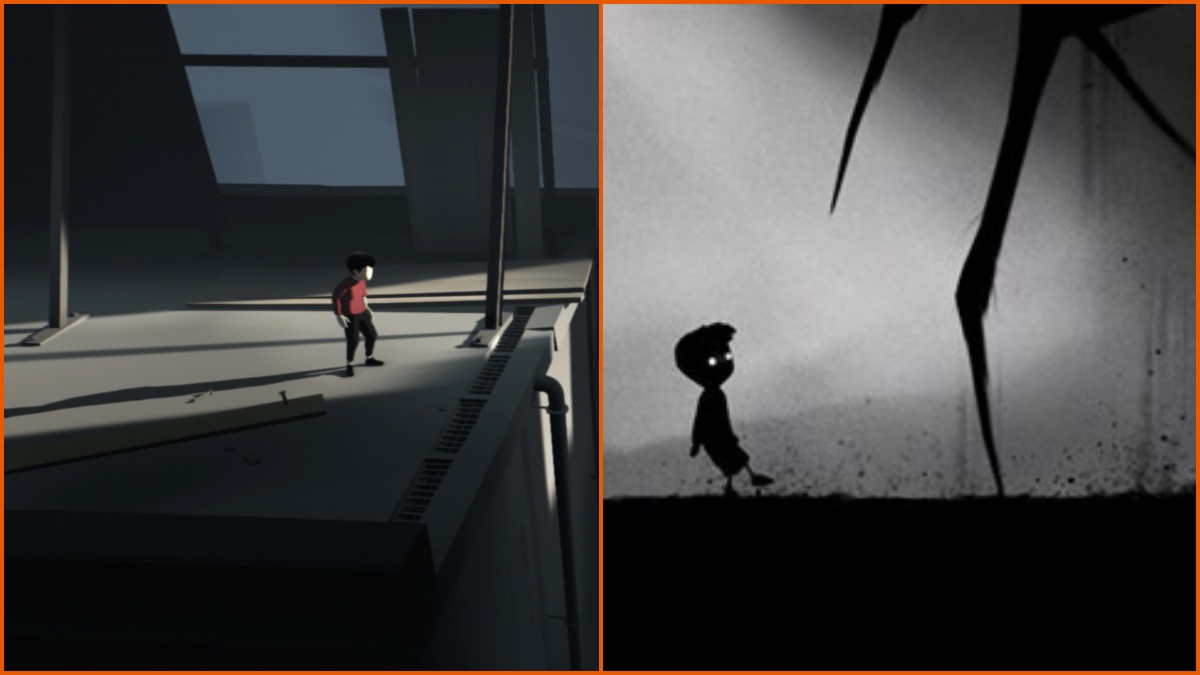
Both by Playdead, Inside and Limbo are puzzle-platform games. Inside follows a boy in a dystopic world who avoids death by uncovering the mysteries of a government experiment turning regular people into mindless zombies. Limbo also sees a young boy traversing a dangerous world in search of his sister, following a pattern that the developer called “trial and death.” Although Limbo came first in 2010, Inside proved to be the better of the two, releasing six years later.
Although both are frequently included on lists for the greatest video games of all time, one has a more emotional premise whereas the other takes a more political stance. It’s common practice for the more political of the two to remain prevalent in today’s society, but Inside is also a better-executed game.
Shadow of the Colossus/Ico
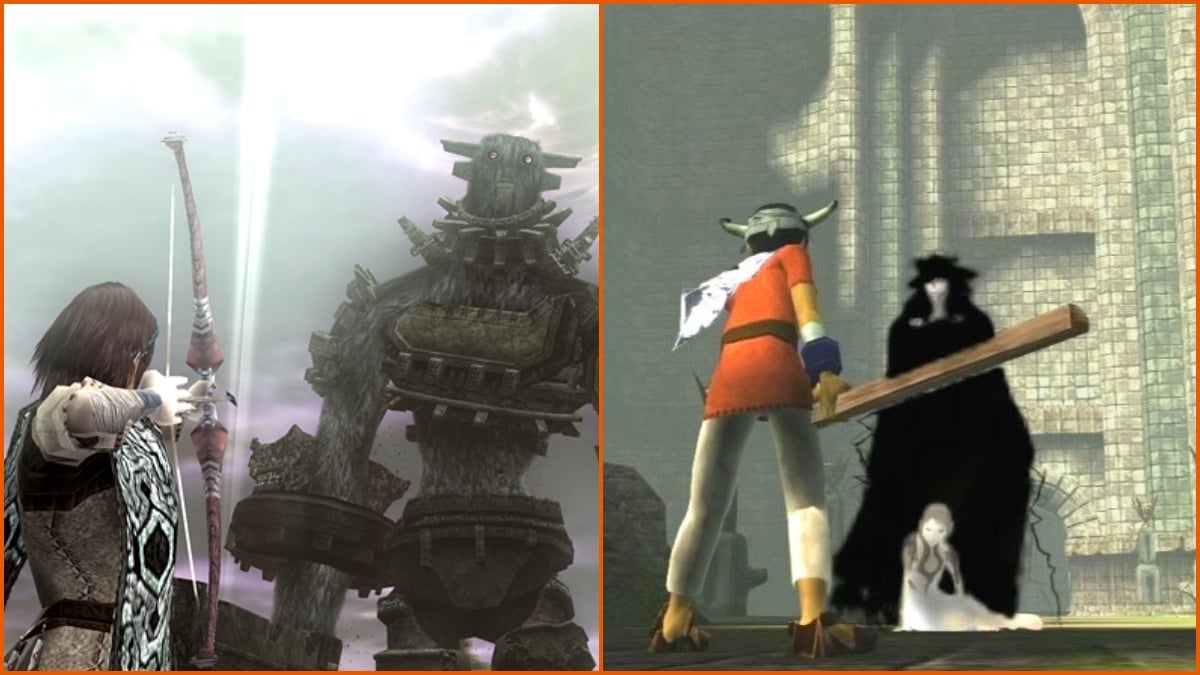
Team Ico, also known as International Production Studio 1, is the development team responsible for the acclaimed PlayStation 2 title Ico as well as the PlayStation title Shadow of the Colossus. Due to its minimalist landscape designs, immersive gameplay, and emotional weight of the player character’s journey, Shadow of the Colossus is often regarded as an important example of video games as art, similar to Bioshock.
Shadow of the Colossus was met with stronger sales than Ico, but particular praise was given to the game’s soundtrack. Although Ico became a hit amongst players, the story of Shadow of the Colossus is much more refined and visually appealing with an aesthetic presentation that’s unparalleled. Ico was favored by critics but failed to reflect that in sales.
Dark Souls/Demon’s Souls
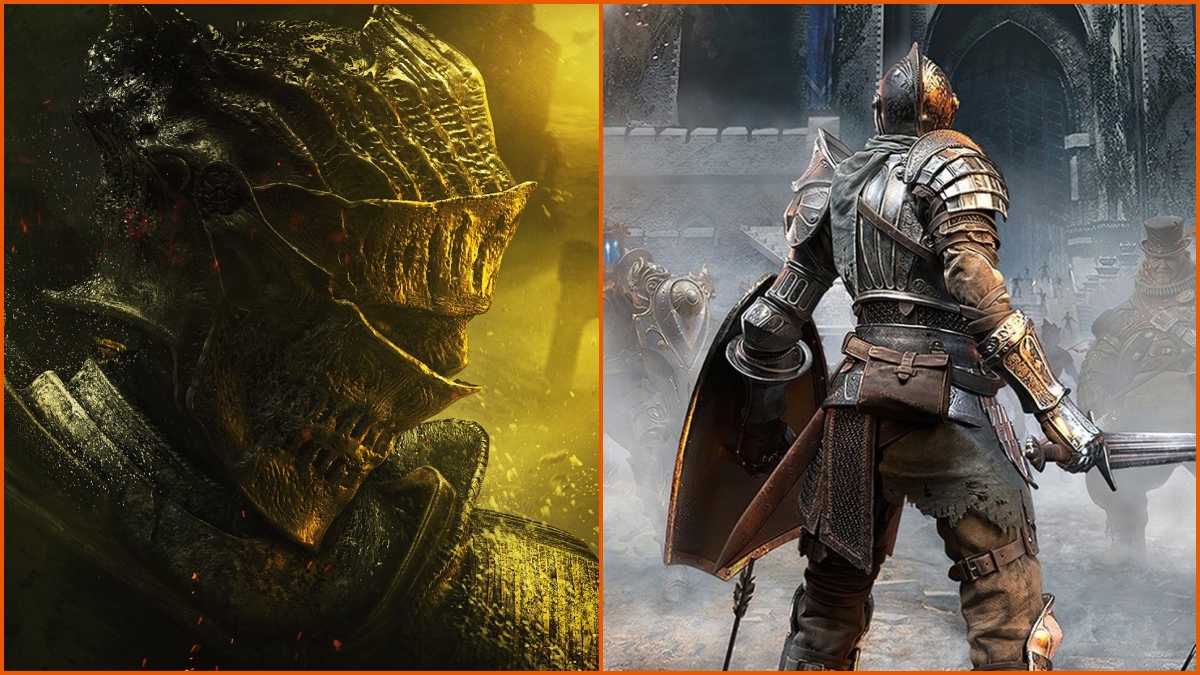
The original Demon’s Souls is itself a spiritual successor to FromSoftware’s King’s Field series. Dark Souls came a few years after Demon’s Souls, then went on to inspire Netflix’s Stranger Things, as well as developing an entire online community. Both games are from FromSoftware Inc. and are grouped together with other like-minded games known as Soulsbornes. Both games take place within a dark medieval fantasy setting and execute a player-versus-player system.
Although the success of Demon‘s Souls inspired Dark Souls, the latter is more frequently recognized as a stand-out Soulsborne title. The first Dark Souls is cited as one of the greatest video games of all time, but regardless, both games inspired common features used in the Soulslike genre.

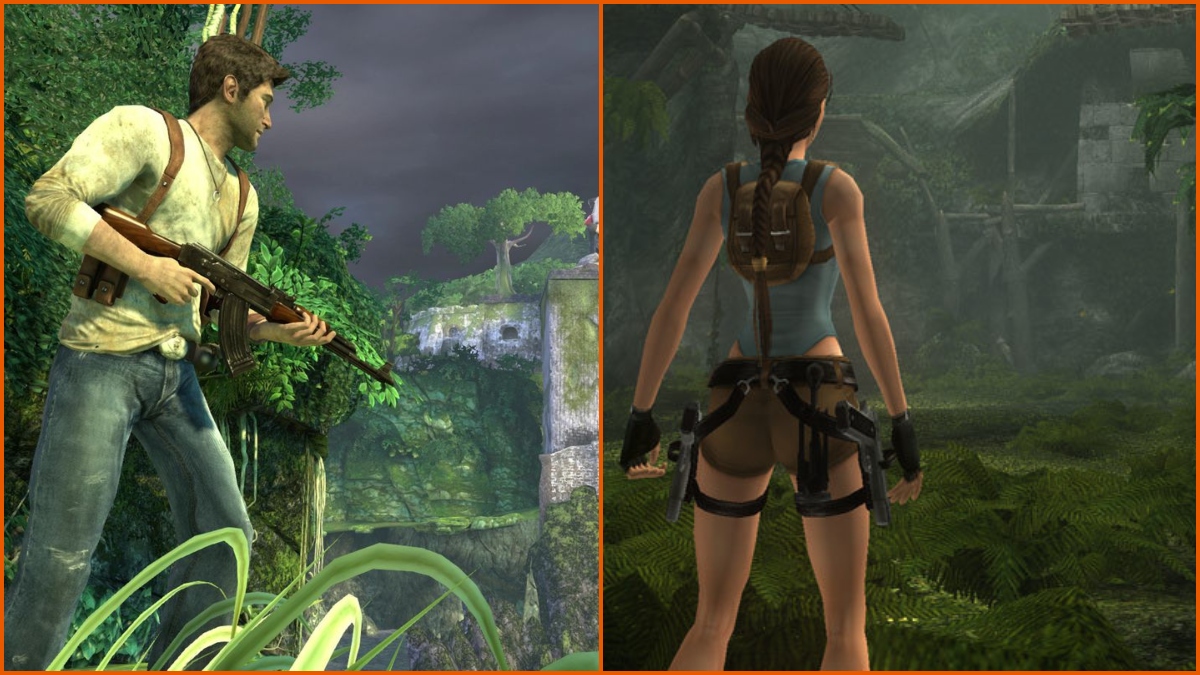









Published: Aug 25, 2023 01:40 pm